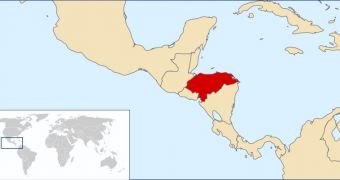On Sunday, Honduras saw the first military coup in South America since the end of the Cold War, as the Armed Forces moved in exile leftist President Manuel Zelaya to Costa Rica. Pro-Zelaya protesters took to the streets, and Reuters reports that shots were fired near the presidential palace, although it was not immediately clear whether there were any victims. Reports seem to indicate that the shots were fired in the air, so as to intimidate the crowds.
The move further amplifies the tense situation in the region, as Venezuelan President Hugo Chavez has mobilized the nation's army near the Honduran border, in case the armed forces move against the Venezuelan embassy or representatives in Honduras. At this point, Roberto Micheletti is the interim president, appointed by the country's top courts and Congress.
Zelaya managed to anger these institutions, as well as the Army, by proposing new legislation to allow for him to be reelected for another five-year term. He has been in office since 2006.
US President Barack Obama, leaders of the European Union, and other representatives of a number of governments around the world immediately voiced support for the ousted president, and condemned the Honduran Army's actions. Even the Organization of American States said that Zelaya needed to be allowed immediate and unconditional return to his office. However, top military officials in the country explained that their actions were sanctioned by the top courts, which asked them to move in and solve the situation. This is the first time unrest breaks out in Honduras since the end of its military regime, in the 1980s.
The South American nation is one of the major coffee- and banana-producing countries in the world, but its economy is heavily reliant on incomes sent back by Hondurans working abroad. With the global economic crisis at full strength, those incomes become smaller as the months pass, so the country finds itself in a deep economic crisis as well. The ousting of the president came as he was trying to pass modifications to the Constitution, which would have allowed him the chance to run for another mandate as the nation's leader. At this point, Honduras only allows a single term per individual, unlike most states in the world, where two or three terms are allowed by Constitution, for each president.
“If holding a poll provokes a coup, the abduction of the president and expulsion from his country, then what kind of democracy are we living in?” Zelaya asked from his exile in Costa Rica. The Supreme Court in Honduras said it ordered the removal of the president on account of the fact that he himself removed General Romeo Vasquez, the head of the Armed Forces, from office.

 14 DAY TRIAL //
14 DAY TRIAL //